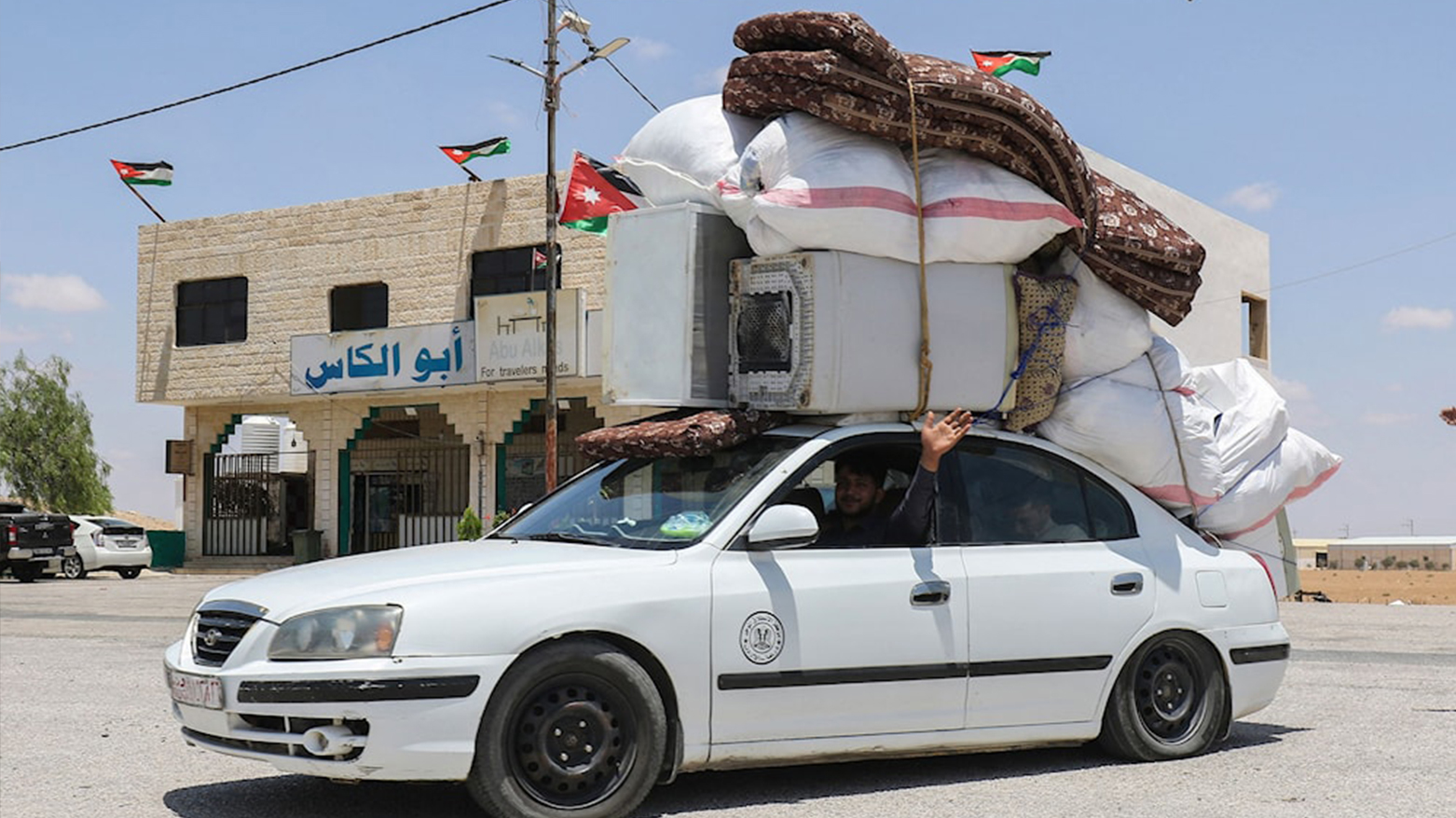UN: One Million Syrian Refugees Return Home After Assad’s Fall
UN reports 1 million Syrian refugees have returned since Dec. 2024, citing hope amid reintegration challenges. The announcement follows President al-Sharaa's UN speech outlining his government's reconstruction and justice plans.

Erbil (Kurdistan24) – The United Nations announced Wednesday that one million Syrian refugees have returned to their homeland since the fall of Bashar al-Assad’s regime in December 2024, underscoring both the deep hopes and the daunting hardships of a country in transition. The UN refugee agency (UNHCR) described the scale of return in just nine months as an “extraordinary sign of hope,” yet cautioned that destroyed infrastructure, weak services, economic fragility, and security concerns continue to hinder sustainable reintegration.
According to UNHCR, one million Syrians who had sought refuge abroad have gone back since Assad’s downfall on December 8, 2024. In parallel, 1.8 million people internally displaced during Syria’s nearly 14-year conflict have also returned to their areas of origin. But the agency stressed that more than seven million Syrians remain uprooted within the country and over 4.5 million are still refugees abroad.
“These men, women, and children endured immense suffering, and the most vulnerable among them still require protection and assistance,” UNHCR chief Filippo Grandi said, adding that a recent survey found 80 percent of Syrian refugees in Jordan, Lebanon, Egypt, and Iraq expressed the desire to return, with nearly one in five wishing to do so within a year.
Grandi called this a “rare opportunity to resolve one of the largest displacement crises in the world,” while lamenting that funding for the humanitarian response is dwindling. Inside Syria, UN agencies have received less than a quarter of what they need to provide aid this year, and only 30 percent of the wider regional appeal has been met.
The UN announcement comes after Syrian President Ahmad al-Sharaa addressed the UN General Assembly in New York, presenting what he termed “the Syrian story” as a passage from oppression to liberation. In a sweeping speech, al-Sharaa accused the former regime of committing mass killings, using chemical weapons in more than 200 documented attacks, and displacing 14 million people. He declared that the transitional government had dismantled “a system of oppression that lasted sixty years” and emphasized its commitment to justice, reconciliation, and reconstruction.
Al-Sharaa pledged trials for perpetrators of atrocities, the establishment of national commissions on transitional justice and the missing, and the restructuring of state institutions under the principle of central authority over arms. He outlined his administration’s focus on balanced diplomacy, security stabilization, and economic revival, while calling for the complete lifting of sanctions to allow Syrians to rebuild without restrictions.
“We have already opened the Syrian market to regional and global investment, and major companies are entering to contribute to reconstruction,” he said.
Despite this political shift, UNHCR warned that Syrians returning home face “immense challenges.” Many neighborhoods lie in ruins, essential services remain damaged or unreliable, and jobs are scarce. Volatile security conditions also weigh heavily on communities attempting to rebuild.
The UN underscored that sustainable reintegration depends on targeted investment in areas of return, urging the international community to step up. “Without proper support, the determination of returnees will falter,” the agency cautioned.
While al-Sharaa hailed Syria’s “new chapter of peace, prosperity, and development” and reaffirmed his commitment to resisting Israeli aggression through diplomacy and international law, the gap between political promises and the reality facing ordinary Syrians remains stark.
For the million who have come back, the return signals faith in a future beyond war. For millions more still scattered across the Middle East and beyond, the question of return remains bound not only to Syria’s political trajectory but also to whether the world is willing to invest in turning fragile hope into lasting stability.